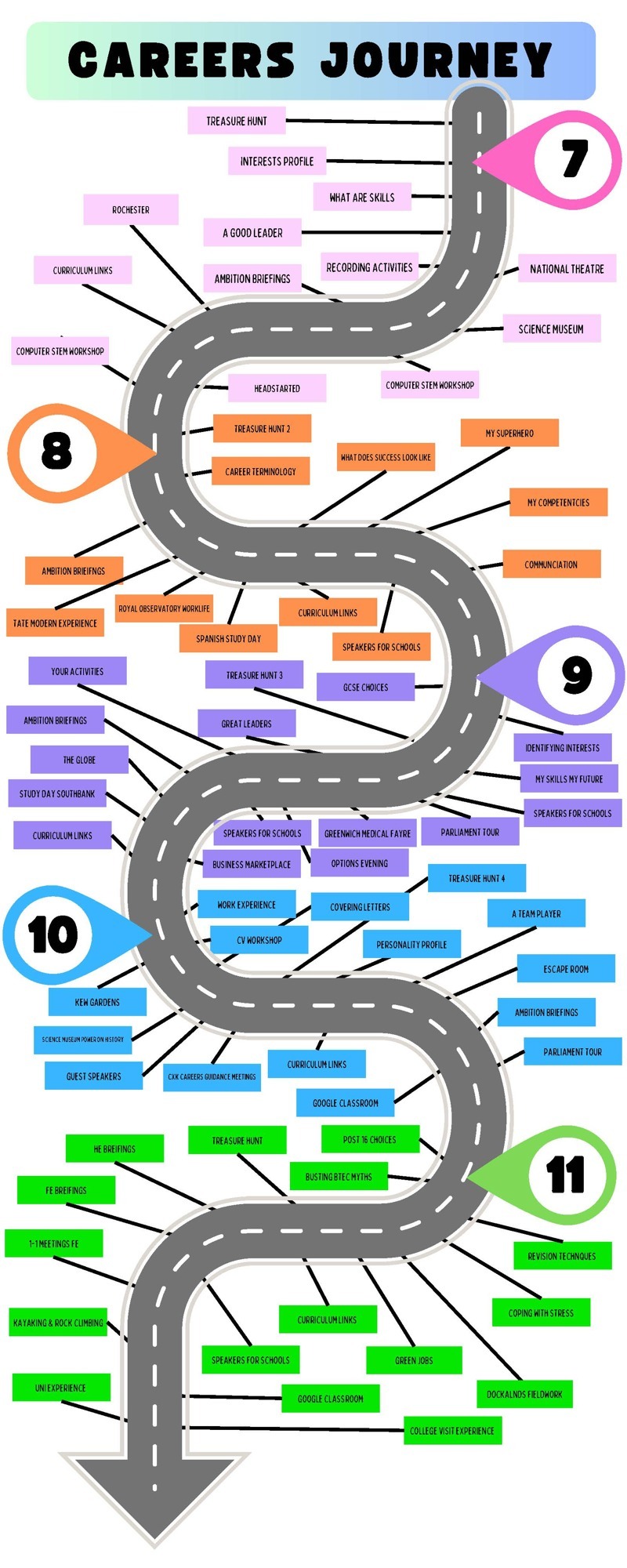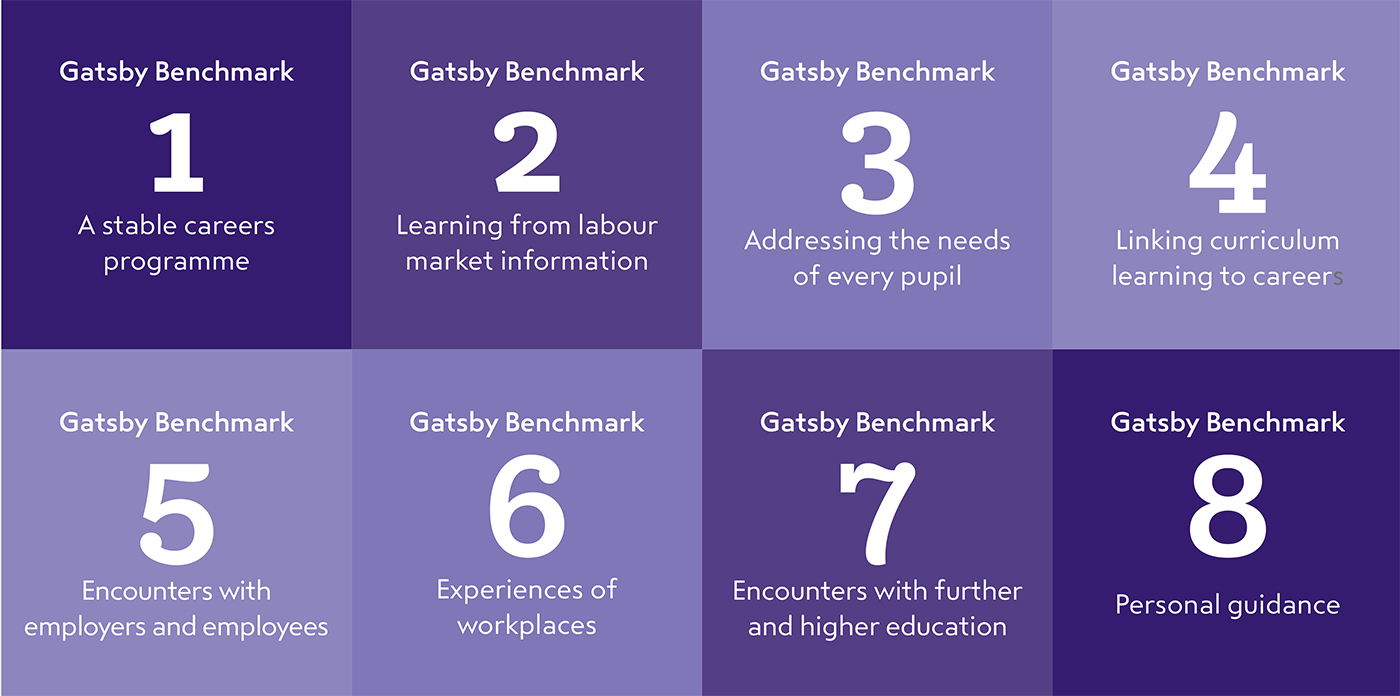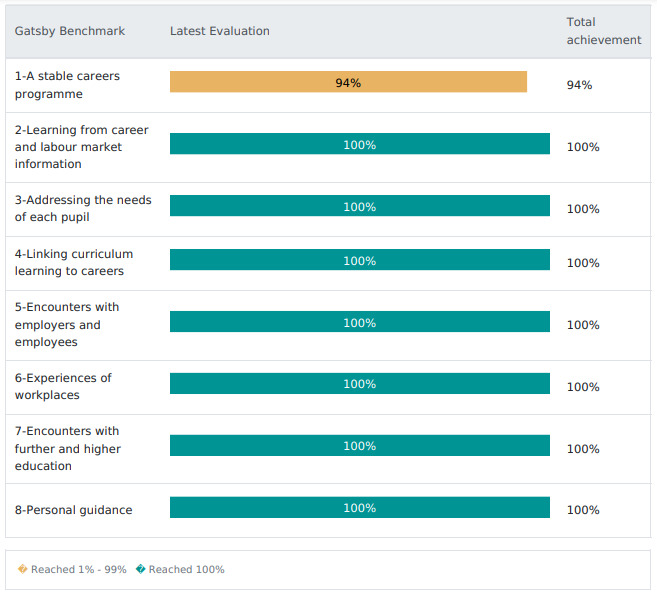Careers
Orchards Academy is committed to providing quality and impartial careers education, information and guidance (CEIAG) ensuring students are able to make informed and aspirational choices about their future routes.
Our careers programme is comprehensive. CEIAG is delivered through form time, assemblies, drop down days, individual subject’s curriculum and in Personal Development time. The Gatsby Benchmarks are mapped out clearly in all we deliver.
Our Careers Leader is Darren Wheeler - darren.wheeler@orchards-tkat.org - 01322 665231
All students in Years 7 – 11 have the right to Careers Education and Guidance about the pathways and choices which are open to them.
Your son/daughter will receive information, advice and guidance throughout their time at Orchards Academy. This will help them to make informed decisions about their future. This will come through careers education lessons, assemblies and tutor time, through discussions with subject teachers and through 1:1 interviews as well as visits from employers and visits to higher education institutions.
This means students will be offered:
- A programme of careers lessons at different times during Years 7 – 11
- Open, fair, honest and impartial advice about all the routes open in education, work and training
- Help to work out what will suit them best, how to make sensible decisions and what action they need to take.
- The opportunity to learn skills and gain knowledge needed for their future
- Access to a variety of work related learning opportunities
This will be provided by:
- Tutors, External advisers, Progress Leads, SLT, Trips & Guest Speakers
- We measure the progress of our careers programme by impact data and the statistics around the number of NEET (Not in Education, Employment or Training) students, this is reviewed annually in July.
- This information is reviewed annually.

As part of the guidance given to students they will follow a comprehensive programme dedicated to post 16 education, employment and training options.
This will be delivered during Key Stage 4 and 5.
- Advice on effective application and interview skills
- Impartial careers guidance interview
- College and University interview preparation
- References
- Academic achievement forecasts (based on school assessments)
- CV preparation
What choices do students have after Year 11?
There are a range of options available after Year 11:
- Continuing with education at 6th form or college
- Starting career related training (Apprenticeships, foundation learning)
All of these options have a range of entry requirements.
College or sixth form?
What is the difference between going to college and attending a sixth form?
Colleges offer a wider range of courses for different abilities (motor mechanics, hairdressing, catering etc)
Sixth forms focus on more academic subjects, smaller environments, younger age groups, more tutor contact
Qualification levels and what they mean
- Level 3- A levels, requiring five band 4+ grades including English and Maths
- BTEC extended diplomas- (previously called BTEC nationals) in depth practical related study can lead to universities.
- Level 2- courses requiring band 3 grades or higher, good stepping stones for level 3 courses.
- Level 1- For students with bands 1-2 grades
- Entry level- for students who need more time to improve on some basic needs
There are different pathways that students can choose when applying to study at college, you can study a BTEC Diploma Level 1, 2 or 3 , T Level qualifications (new for 2020) and A levels. Each course has an entry requirement.
In keeping with our commitment to provide students with careers guidance and tailored support when choosing their next step after school, we will be using Unifrog; an award-winning, online careers platform. All students in Years 7, 8, 9, 10 and 11, have access to this resource.
Key features of the platform include:
- Exploring Pathways – personality quizzes, career and subject profiles, MOOCs and webinars
- Recording – self-reflection about extracurricular activities and key employability skills
- Opportunities – search tools showing live vacancies/courses/placements for apprenticeships, universities (in the UK and abroad), FE, virtual work experience and much more
- Applications – tools to help students build applications for a range of pathways (e.g., CVs, Personal Statements, Common App Essays)
Students access the platform by clicking a link in their welcome email, where they create a password and can begin using the platform. They log in to Unifrog using their email address and password, and they can do so from any computer, tablet or smartphone. We would encourage Parents to use the platform with their child so they can support them through the process of deciding their next step.
LMI helps students explore and investigate key aspects of a particular area of employment.
- The sectors,industries and businesses that operate there
- The jobs that exist
- The number and type of vacancies available
- The sectors and the industries that are predicted to grow and increase in the coming years.
- Travel to work routes
- The kind of skills that are/will be needed by industries and businesses
- Pay and progression routes.
Interpreting and narrowing down LMI that is applicable to a young person’s needs can become overwhelming, it is therefore better to start researching areas of interest and concentrate on those industries. We also recommend looking local resources.
Take time to reflect on your own understanding:
- How up-to-date are you?
- How much has changed since your family went to university?
- What routes are there other than university?
Why is LMI Important to Young People?
‘It is vital, in an environment where new industries are emerging and many of the most important jobs of the future don’t yet exist, that individuals have access to high-quality labour market information and earnings data to underpin their choices’. Anne Milton MP
Top 10 Jobs in Kent & East Sussex
Start in Kent & Medway (SELEP Growth Targets and “Indeed” job vacancy information – updated once, every two terms)
London
Careers Websites
Job Portals

